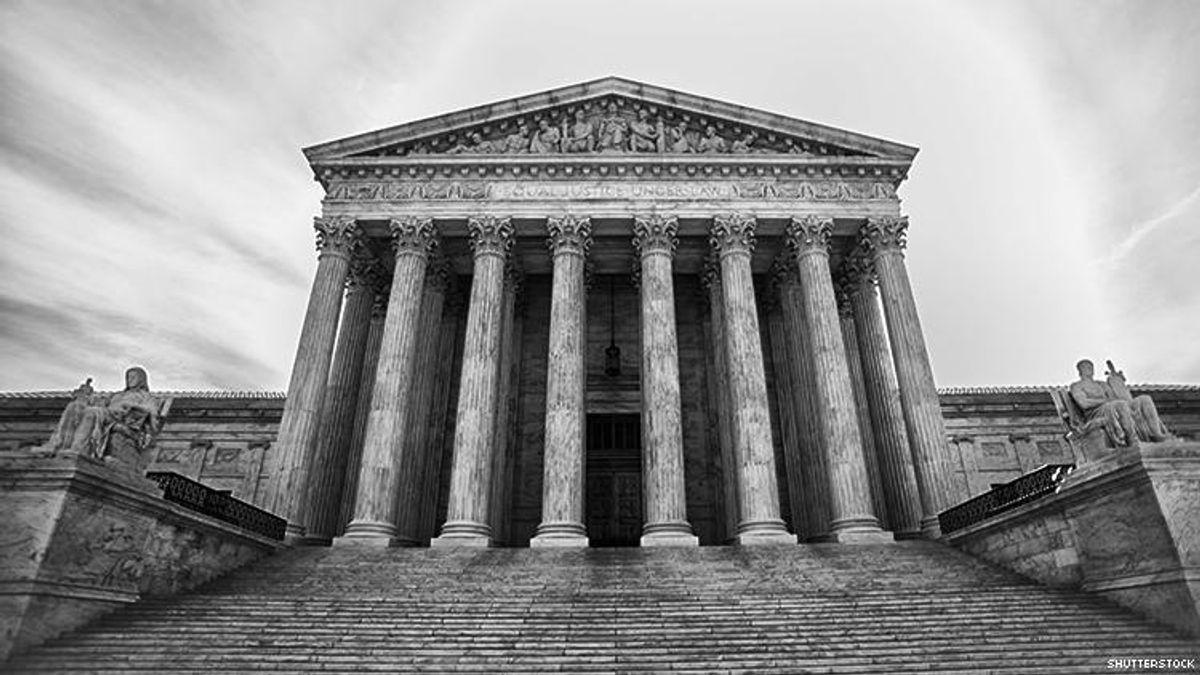As the nation anxiously awaits the election results today, it's worth remembering that Wednesday will bring a significant event as well -- the U.S. Supreme Court will hear a major LGBTQ+ rights case.
Fulton v. City of Philadelphia revolves around whether organizations that hold government contracts have to comply with antidiscrimination laws. In 2018, the Philadelphia Department of Human Services ended Catholic Social Services' contract to provide foster care placements because the agency, citing its religious beliefs, would not place children with same-sex couples or LGBTQ+ individuals, thus violating the city's inclusive nondiscrimination law. Another contractor, Bethany Christian Services, rescinded its anti-LGBTQ+ policy and kept its relationship with the city.
Catholic Social Services and three foster parents sued, claiming that the Philadelphia city government had violated its religious freedom. A U.S. district judge ruled against the agency in July 2018, saying the city has an interest in assuring "that the pool of foster parents and resource caregivers is as diverse and broad as the children in need of foster parents."
A federal appeals court upheld the ruling last year. "The City's non-discrimination policy is a neutral, generally applicable law, and the religious views of CSS do not entitle it to an exception from that policy. ... [CSS] has failed to make a persuasive showing that the City targeted it for its religious beliefs, or is motivated by ill will against its religion, rather than sincere opposition to discrimination on the basis of sexual orientation," Judge Thomas L. Ambro wrote for the U.S. Court of Appeals for the Third Circuit.
Catholic Social Services then appealed to the Supreme Court, which will hear arguments Wednesday, during Justice Amy Coney Barrett's first week on the court. Barrett, who gives the court a 6-3 majority of conservatives, heard her first case Monday. She is a far-right jurist who has ties to the anti-LGBTQ+ Alliance Defending Freedom, has criticized the high court's marriage equality decision, and has served as a trustee of private Christian schools that discriminate against LGBTQ+ students and staff.
Donald Trump's administration has filed a friend-of-the-court brief in the case arguing in favor of the agency's right to discriminate. Such briefs are filed by organizations and individuals that are not directly involved in a case but want to express an opinion.
The brief from the Department of Justice argues that by ending the contract, the city has shown hostility to religion. "Denying an exception here produces the very outcome that Philadelphia ostensibly seeks to avoid -- it excludes foster families affiliated with Catholic Social Services not because of the best interests of the child, but because of the City's disagreement with this religious organization's view of same-sex marriage," the brief reads.
The court's ruling will not come for several months. It could be shaped narrowly, applying only to the relationship between Philadelphia and Catholic Social Services, just as the 2018 Masterpiece Cakeshop ruling applied only to the state of Colorado and the bakery owner who refused to serve a same-sex couple. Or it could establish a broad license to discriminate.
"The consequences could be vast: If a Catholic foster care agency is allowed to circumvent the law by refusing to place children in homes with LGBTQ parents, what's keeping a different group from refusing services to people based on other protected classes like race, religion, or national origin?" notes a blog post from GLAAD. "Does it open the door for retail businesses to use religious justification to put signs in their windows saying they won't serve certain types of people? And if religious groups are able to simply ignore one existing law (such as a nondiscrimination ordinance), what other laws will they be able to break by citing religious freedom -- laws governing public safety like building codes and food safety requirements? How will state and local governments set and enforce the terms of its contracts, even when paying with taxpayer money?"
Six days later, November 10, the high court will hear a case on whether to declare the Affordable Care Act unconstitutional. If it strikes down the ACA, many Americans will lose their health insurance, and nondiscrimination protections included in the act will be invalidated as well -- for instance, the provision against discrimination based on preexisting conditions. Such a decision stands to affect many LGBTQ+ Americans, especially transgender Americans. "Anyone interested in the results of that case should closely watch Fulton; it's likely the court's new direction will be revealed in the arguments here," GLAAD observes.












































































